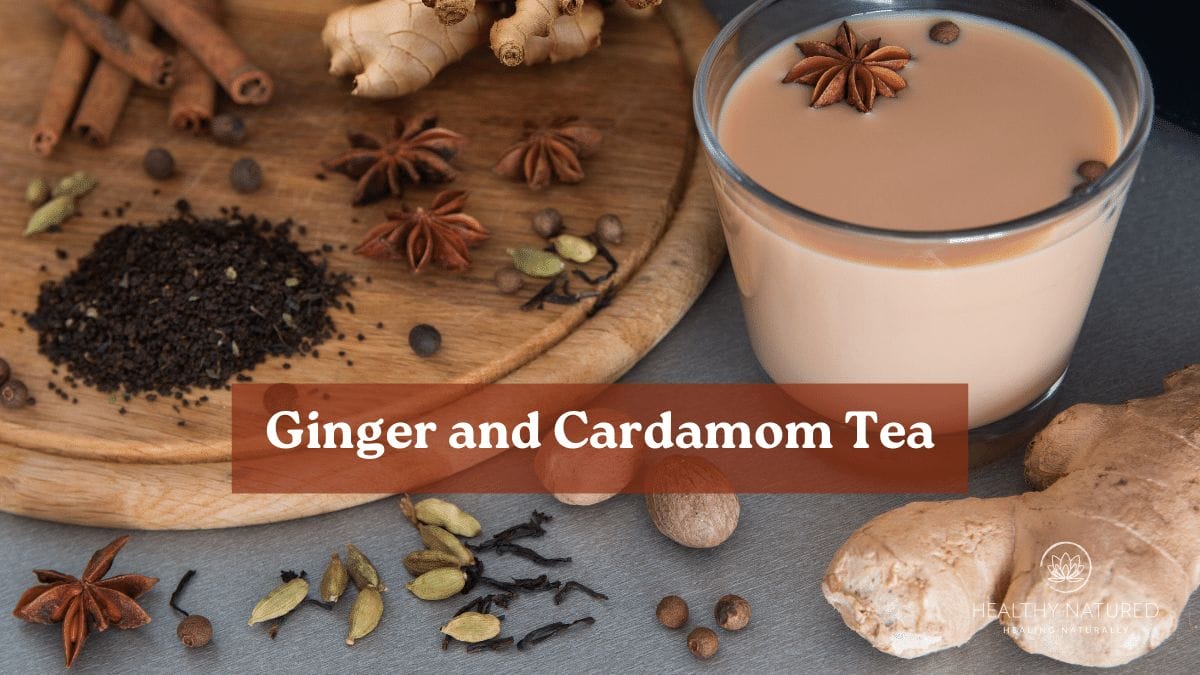Chamomile tea weight loss remedies are all natural and utilize the mild strength of chamomile blossoms to promote healthy metabolism and relaxation. New polls reveal almost 30% of wellness junkies turn to herbal brews for organic weight loss.
Chamomile’s calming effect makes it a favorite among those seeking equilibrium in stressful routines. Here’s how the tea can be a calming step on your path to well-being.
Key Takeaways
- Chamomile tea can support weight management by reducing stress, improving sleep, and helping to control cravings, making it a gentle addition to any wellness routine.
- Regular consumption can contribute to weight loss by balancing blood sugar and supporting digestion.
- Chamomile’s natural bioactive components, including apigenin and luteolin, deliver anti-inflammatory and antioxidant effects that encourage metabolism and well-being.
- Making a ritual out of drinking chamomile tea, particularly as a component of a mindful eating or night time routine, can help you unwind and commit to sustainable health goals.
- Pairing chamomile with an active lifestyle, intentional eating, and consistent self-reflection will help you get the most of each sip’s benefits and keep weight loss in check.
- As always, listen to your individual health requirements and see a health provider if you have any concerns or are on medications, since chamomile may not be appropriate for everyone.

The Chamomile Tea Weight Loss Connection
While chamomile tea detox is prized for its soothing scent and subtle taste, its weight loss benefits have been increasingly recognized. Although research in humans is lacking, the beneficial compounds in chamomile, particularly its bioactive constituents, may help with mild enhancements in weight management, especially when combined with other healthy habits.
1. Stress Reduction
Stress and weight gain go hand in hand — it can cause you to seek solace in emotional eating or late-night munchies. Chamomile tea is a natural stress buster. Its relaxing properties are due to apigenin and other compounds that seem to help reduce cortisol, the body’s main stress hormone.
By calming your nervous system, chamomile tea can tamp down the inclination to grab some chips during a stressful moment or at the end of a hard day. When incorporated regularly into your bedtime ritual, chamomile tea drinking creates this relaxation vibe while aiding your quest to shed extra pounds.
For those who prefer softer, natural remedies for stress, chamomile tea can be particularly effective in reducing emotional eating and improving your body composition.
2. Sleep Quality
Quality sleep is key to metabolism and appetite control. As a sedative, chamomile tea promotes a deeper, more restorative sleep. Taken as a nightcap, chamomile tea could help you fall asleep more quickly and wake less often.
Better sleep promotes balanced hormone production, particularly those that control hunger and satiation. Research has indicated that poor sleep might affect metabolic function, making it harder to lose weight.
Adding chamomile tea weight loss remedies to your bedtime ritual might just give you the slight push your body needs toward healthier sleeping and better weight control. Restful nights not only boost your mood and energy levels, but they curb nighttime late-night snacking—a small change that can compound over time.
3. Blood Sugar
New research indicates chamomile tea can help regulate blood sugar levels, thereby aiding weight management. Its polyphenols, especially luteolin and apigenin, demonstrated antihyperglycemic properties in animal studies—minimizing insulin spikes and enhancing insulin sensitivity1The effect of chamomile consumption on glycemic markers in humans and animals: a systematic review and meta-analysis.
Stable blood sugar curbs sugary cravings and keeps energy levels even throughout the day. In animal models, chamomile compounds have even reduced obesity-associated insulin resistance.
Although additional human data is required, incorporating chamomile tea into your diet may augment other blood sugar control and weight gain prevention approaches.
4. Digestive Health
We frequently turn to chamomile tea to relieve digestive upset and bloat. Its mild effect can stimulate good digestion and nutrient absorption2Chamomile: A herbal medicine of the past with bright future. Add Chamomile’s gentle touch to your digestive tract promotes wellness.
A humble cup post meal can go a long way towards gut health.
5. Anti-Inflammatory
Chamomile tea’s anti-inflammatory effects can aid in decreasing chronic inflammation related to obesity and metabolic diseases. In reducing inflammation, chamomile may promote better metabolism and weight loss3Chamomile tea improves glycemic indices and antioxidants status in patients with type 2 diabetes mellitus.
Animal studies bring out its significance in lowering inflammatory responses associated with fat-rich diets.

Beyond the Scale: A Holistic View
We seek the big picture—how physical, mental, and even environmental factors are at interplay. Chamomile tea weight loss remedies, with their ancient healing history, are more than just weapons for losing weight. They are known to support health on multiple fronts — brain, gut, and daily routines.
This chapter refers to the way chamomile, integrated into your lifestyle, promotes long-lasting wellness — not just weight on the scale readings.
Mental Clarity
The soothing qualities of chamomile tea are known to help activate clearer thinking. This simplifies thoughtful, healthy food decisions in stressful moments.
Chamomile’s cognitive benefits research has demonstrated the herbs potential for calming stress and improving concentration. With fewer mental distractions, adherence to your eating strategy is less of a battle.
This herbal tea seamlessly integrates into work or study sessions, providing an organic productivity kick without the caffeine jitters. One case is, for instance, replacing an afternoon coffee with a cup of chamomile to keep the mind clear and the nerves calm.
In the long run, this habit bolsters your capacity to maintain dietary discipline.
Gut-Brain Axis
Chamomile’s impact on the gut-brain axis is one of the most interesting dimensions of its holistic potency. Your gut and brain are in constant conversation—what calms one can calm the other.
Sip on some chamomile tea to balance out digestion – the herbs flowers boast anti-inflammatory compounds such as alpha-bisabolol and matricin. Once gut health is restored, you’ll be surprised to discover that your mood holds steady and cravings are not as intense.
Backing a balanced microbiome isn’t just about probiotics. Incorporating gut-friendly habits like a nightly chamomile tea ritual can move the dial in the long run.
This subtle assistance can potentially stave off problems related to metabolic syndrome, fatty liver, and insulin resistance.
Craving Control
Chamomile tea is an easy to use cravings management tool, particularly for those late-night cravings. It conjures a soothing bedtime ritual that tells your body to chill out—not nosh.
Certain research indicates that chamomile may help to control our appetite, causing a slight feeling of fullness. This impact assists us to control portion size and avoid mindless snacking.
Combined with mindful eating meditation—such as sipping it slowly with awareness of the present moment—it becomes easier to decelerate throughout the day and hear what your body is rfeally saying.
Safety and Sustainability
Chamomile is quite safe but allergic reactions can occur in a very small number of people. Balance and understanding your own threshold is crucial.
Choose good quality extracts, preferably around 50% is optimal for actives. Long-term effects are unknown, but this herb has been used for centuries, so presumably it’s fairly well-tolerated.
For those who ish to supplement their diet can use capsules. Most research supports the use of between 900–1,200 mg daily.

Unlocking The Chemistry Of Chamomile Tea Weight Loss Remedies
Beneath the delicate taste lies a rich phytochemical potion. Its beneficial compounds—flavonoids, polyphenolic compounds, and essential oils—team up to boost health, making chamomile tea for weight loss a wise choice for any natural fat busting arsenal. Here’s a cheat sheet that summarizes the key bioactive compounds and their possible benefits.
|
Compound/Class |
Effect/Benefit |
Notable Details |
|---|---|---|
|
Apigenin (Flavonoid) |
Anti-inflammatory, antioxidant, metabolic support |
Up to 1.2% in extracts |
|
Luteolin (Flavonoid) |
Reduces fat, antioxidant, metabolic health |
Present in smaller amounts |
|
Sesquiterpene Lactones |
Anti-inflammatory, appetite modulation |
Nobilin, 3-epinobilin in Roman chamomile |
|
Polyphenols |
Antioxidant, metabolic balance |
Varies by origin/extraction |
|
Essential Oils |
Relaxation, stress reduction, appetite control |
Chamazulene, bisabolol, proazulenes |
|
Organic Acids/Polysaccharides |
Gut health, metabolic support |
Up to 10% of flower dry mass |
Apigenin
Apigenin, chamomile’s chemistry star, is a powerful anti-inflammatory and antioxidant flavonoid. Research indicates it may modulate fat metabolism by reducing fat accumulation and promoting fatty acid breakdown, potentially aiding in weight management.
Its anti-inflammatory buttons reach to the body’s metabolic alchemy. As chronic inflammation is linked to obesity and insulin resistance, apigenin’s anti-inflammatory potential may help combat these risks. Studies suggest enhanced insulin sensitivity when combined with apigenin, which may help the body utilize glucose more efficiently and promote leanness.
New studies suggest that apigenin may be useful in obesity prevention. Chamomiles effect on adipogenesis and metabolism render it an intriguing plant for the natural medicine seeker in search of healthy body composition.
Luteolin
Luteolin, yet another flavonoid in chamomile, provides anti-adipogenic benefit. It works at the cellular level to inhibit fat-storing enzymes, which makes it applicable to the battle against hard-to-lose flab.
Luteolin’s antioxidant effects assist in quelling free radicals—frequently abundant in individuals with obesity or metabolic strain. This antioxidant support can shield cells from harm, as well as promote better general metabolic health.
Luteolin in chamomile can also be found in other dietary sources such as parsley, celery, and green peppers. Its effect on metabolic health and weight loss is being researched around the world! Chamomile tea provides a mild, everyday method of incorporating this compound into your wellness regimen.
Essential Oils
The essential oils in chamomile—like chamazulene and bisabolol—provide more than scent. They help you relax, keep your mood balanced, and reduce stress—all of which can aid an emotional eater or junk food addict.
These oils work both by inhalation and ingestion, with aromatherapy using roman chamomile oil being a favorite form of stress relief. Chamomile essential oils can be used to modestly suppress appetite, aiding mindful eating.
By incorporating these oils into our diet via tea, aromatherapy, or topical blends, you help reinforce a sense of calm and wellness that is so important when you’re trying to manage your weight.
Antioxidant Activity
Chamomile extracts are antioxidant-rich due to their polyphenols and flavonoids. These compounds protect the body from oxidative stress—something that’s closely linked to obesity and metabolic syndrome.
In addition to neutralizing free radicals, chamomile may promote metabolic balance and decrease weight gain risk factors. That antioxidant activity is greatest in quality extracts—with roughly 50% alcohol to extract being seen as ideal(alcohol being the best extraction medium) but this percentage can vary based on plant origin and preparation.

Simple Chamomile Tea For Weight Loss Recipe
Chamomile tea, known for its calming properties, is easy to make and provides a light, soothing taste that integrates effortlessly into a healthy lifestyle. This herbal tea is employed in numerous cultures as a calming aid and is a go-to brew for individuals seeking weight management assistance. Weight loss is achieved through the beneficial compounds found in chamomile preparations. The recipe below will get you started, but you have tons of flexibility to add your own flair.
Ingredients
- Fresh chamomile flowers (a handful) or 2 teaspoons dried
- 240 ml (8 ounces) boiling water
- Optional: 1 teaspoon honey or maple syrup
- Optional: 1 tablespoon lemon juice or a wedge of fresh lemon
- Optional: 2-3 fresh apple mint leaves
- Optional: a cinnamon stick or pinch of ground cinnamon
- Optional: 1-2 peppermint leaves
- Optional: milk of choice (dairy, almond, coconut, or rice)
- Optional: splash of brandy or whiskey (for a warming variation)
Fresh or dried chamomile, can be used as a chamomile tea detox or in other chamomile preparations, such as oils and aromas. The herb is used for the hallmark floral notes and properties known to be effective for losing weight. Enhancements such as honey provide natural sweetness, while a lemon squeeze can enliven the flavor and stimulate digestion. Others love cinnamon for its richness and mint for its cooling undertones, allowing you to tailor this herbal tea to your morning or nighttime regimen.
Chamomile Tea Recipe Instructions
-
Add chamomile flowers (fresh or dried) into a teapot or heatproof cup.
-
Pour 240 ml boiling water over the flowers.
-
Steep for 5–7 minutes; longer for a stronger brew.
-
Strain the tea into another cup, discarding the flowers.
-
Stir in honey, lemon, or other chosen enhancements.
-
Let cool for 2–3 minutes before sipping to savor its full soothing glory.
Steeping times for chamomile tea detox can be modified to suit your taste. Some prefer an extra light brew, while others enjoy a strong flower blast from the chamomile plant. For dried chamomile preparations, a shorter steeping time will prevent bitterness, but fresh flowers might benefit from the full 7 minutes. Always let the tea cool slightly to enhance the comforting flavors.
Enhancements
- Add hibiscus for tartness or peppermint for a lift.
- Try apple mint or a cinnamon stick for understated sophistication.
- You can infuse with slices of citrus fruit like orange or lemon for brightness.
- Make your own blend with herbs such as ginger or fennel for extra digestive benefits.
Outside of the traditional recipe, combining chamomile with other herbs can increase its soothing or metabolism-boosting properties. A splash of milk — dairy or plant — lends creaminess and can give the tea a more substantial feel, especially at night.
For a little extra oomph, a splash of whiskey or brandy transforms the tea into a luxurious adult nightcap—a specialty some save for chillier nights or celebrations. By sharing your favorite chamomile tea recipe with friends or family, you’re not only spreading the health, you’re encouraging them to experiment and find their own favorites.
When thinking about adding a personal touch—perhaps a preferred sweetener or special herb— ensure it is not an ingredient that causes weight gain. Done well you can metamorphose this age-old tea into a wellness ritual that feels both universal and intimate.
Maximize Your Results
Chamomile tea detox can be a subtle, yet powerful, ally in your quest for weight loss. To truly capitalize on its advantages, mindful habits and deliberate rituals can be just as important as the tea. A checklist can help you stay on track: maintain a consistent tea ritual, pair it with an active lifestyle, monitor your progress, and use the calming nature of chamomile extract to support mental balance.
Mindful Eating
Enjoy a sip of chamomile tea as you dine. Appreciate the subtle floral notes and feel the warmth caress your senses.
This mindfulness also makes meals more satisfying and helps you tune into satiety. Chamomile’s soothing nature can ground your awareness, serving as a mindful interlude to sidestep binging. Being at the table makes you more aware of when your body is hungry and full.
This mindfulness promotes good decisions and can instinctively trim calories without suffering.
Consistent Routine
A daily chamomile tea ritual may seem basic but it’s a heavy hitter. Select a consistent time–maybe early morning or as an evening wind-down. Repetition forms a wellness anchor for your day.
Incorporating tea into your day inspires regularity. If you’re skipping days, adjust. For instance, maintain a thermos of brewed chamomile either at your desk or bed-side.
Rhythm is important both for metabolic reasons and for psychological comfort. The flavonoids apigenin and luteolin found in chamomile back up this routine with consistent anti-inflammatory and metabolic benefits over time that are beneficial to blood sugar management and general health.
Active Lifestyle
Chamomile tea + exercise = accelerate your results. After a workout, chamomile serves as an excellent recovery beverage, aiding muscle relaxation and stress relief.
Fitness goals and tea rituals can compliment each other. Chamomile’s anti-inflammatory and antioxidant properties may assist in recovery, and the possible anti-obesity and anti-diabetic effects complement your weight goals.
If possible, take a brief walk or light stretch prior to or post your tea to enhance the mind-body connection. For stress and anxiety managers, chamomile’s soothing effect can break down the psychological resistance to exercise.
Progress Tracking
For each habit, track your progress using a journal or app. Little tidbits on tea times and exercise and mood provide great insight.
Look for patterns: improved sleep, less stress, or gradual changes in body composition. Adapt your strategy.
Stay patient—progress takes time.

Potential Risks and Considerations
Chamomile tea sounds like a soft solution, but there’s a lot more going on underneath, particularly if you’re reaching for it to support weight loss. It’s prudent to keep potential risks and personal considerations in mind, so you can sip your cup in peace and good conscience.
The table below highlights main risks to keep in mind for a global, health-conscious audience:
|
Risk/Consideration |
Details |
|---|---|
|
Allergic Reactions |
Possible if allergic to chamomile or related plants (ragweed, marigolds, daisies, chrysanthemums). Symptoms range from mild itching to severe breathing issues. |
|
Medication Interactions |
Chamomile may interact with blood thinners, sedatives, or anti-rejection drugs. Always check with a healthcare provider, especially if on regular medication. |
|
Pregnancy and Nursing |
Effects on pregnancy and breastfeeding are not fully understood. Best to consult a doctor before use. |
|
Asthma |
Chamomile might trigger symptoms in those with asthma or respiratory issues. Remain cautious and monitor any changes. |
|
Drowsiness |
Can cause sleepiness. Avoid drinking before driving or using heavy machinery. |
|
Surgery |
Stop use at least 2 weeks before surgery due to possible bleeding risks or drug interactions. |
|
Health Conditions |
If you have cancer, digestive disorders, or complex health issues, medical advice is important. |
|
Children and Babies |
Effects are unpredictable. Always consult a pediatrician before giving chamomile to young children. |
Moderation counts. Even though chamomile is mild, still, more ain’t necessarily better. A few cups a day might be safe for most adults, but high intake over time could raise your risk for side effects like drowsiness or digestive upset.
Moderation prevents developing a habit, particularly if you smoke to assist with sleeping or stress.
Medication interactions are a major concern. Chamomile has natural chemicals that may impede blood clotting, amplify the strength of sedatives, or conflict with anti-rejection medications after transplants.
If you’re on prescription or over-the-counter medications, especially blood thinners like warfarin, you’ll want to consult your doctor prior to incorporating chamomile tea into your regimen. This goes double if you take herbal supplements or vitamins, since interactions aren’t necessarily apparent.
Your own personal health also factors into how chamomile will impact you. For asthmatics, chamomile’s pollen or plant matter may induce wheezing or allergic exacerbations.
If you have cancer, GI disorders, or a chronic condition, seek customized medical guidance. Pregnant or breastfeeding women should be even more cautious, as chamomile’s safety in these stages has not been fully determined.
Conclusion
This Chamomile tea recipe is more than a bedtime ritual. For most, it offers soft assistance to digestion, stress reduction and repose—all components involved in weight equilibrium. The science on chamomile’s soothing compounds is accumulating, but its magic is most often found in rituals and self-care.
When it comes to weight loss, thinking big-picture as in, an overall self-nourishing endeavor instead of fixating on fast solutions is what brings the best outcome. Chamomile tea can slot beautifully between balanced meals, movement and mindful self-care. Whether you’re new to herbal teas or a long-time fan, paying attention to your body and observing subtle shifts helps create a rhythm that still feels cozy and sustainable.
Chamomile tea weight loss remedies are a powerful complement to a holistic lifestyle, providing gentle digestive, relaxation, and sleep aid. Its real power comes paired with intention and moderation.
FAQ
Good sleep bolsters your metabolism and decreases stress eating, helping to avoid excess weight and supporting antioxidant defenses.
Absolutely, chamomile tea detox is safe for everyday consumption. It’s best left as a delicious addition to a heart-healthy lifestyle of eating well and staying active.
No, chamomile tea detox doesn’t incinerate fat. Its gains are derived from supporting relaxation, digestion, and sleep — which can all indirectly aid weight management.
Drinking chamomile for detox in the evening before bed helps soothe, promotes sleep, and can curb those late-night munchies with its beneficial compounds.
This tea, known for its potential health benefits, is deemed safe; however, it can occasionally induce allergic reactions, especially in those allergic to items that are members of the daisy family.
No, chamomile tea detox is not a substitute for meals or exercise. A wholesome diet and exercise matters when undertaking weight loss. Chamomile preparations add to the impact and can provide great support.
Chamomile tea is known for its potential health benefits and is generally safe for most people, though pregnant and breastfeeding women and those with a pre-existing medical condition should consult a healthcare professional before use.
References
- 1The effect of chamomile consumption on glycemic markers in humans and animals: a systematic review and meta-analysis
- 2Chamomile: A herbal medicine of the past with bright future
- 3Chamomile tea improves glycemic indices and antioxidants status in patients with type 2 diabetes mellitus




